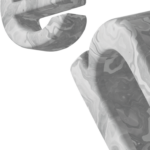

Set up your shop
Create my project

Opening a concept store: how to get it started
19 December 2022
Even though online shopping is more popular than ever, there will always be a demand for traditional stores where customers can have a pleasant shopping experience whilst presented with a variety of products. The business idea of a concept store idea appeared in 1955 when British fashion designer, Mary Quant, opened the first ever concept store in the world on the Kings Road in London. This new business idea of a concept store was called Bazaar. The store represented a mix of music, fashion, and art. At the time the open retail store was not known to be a concept store as the term was only coined around 30 years later. What is important to know about concept stores is that they go far beyond just simply selling products. They represent a lifestyle that appeals to a certain type of consumer. It is an exciting business idea to become a part of. Keep reading to discover what exactly a concept store is today and the steps to open your own business.
What is a concept store ?
With online shopping taking over the retail sector, it has never been so important for traditional brick-and-mortar retails stores to provide more than just products. Meet therefore the concept store, the future of brick-and-mortar retail. What makes them so different from shopping online or traditional retail stores? They are experiential, beautifully designed, enticing and offer sensory experiences that cannot be found online. The design of a concept store is generally known to be unique with a strong theme and aesthetic. The products inside are well curated and appeal to a cultured consumer.
The Steps to Open a Concept Store
The concept store is an exciting and new retail model for shop owners. It is a great business idea, so if you are planning to open a concept store, there are a few steps to think about along the way. Discover some important elements to consider when opening a concept store.
Business Plan of a concept store
One of the very first steps for any kind of retail store is developing a business plan. A business plan should include the answers to the following questions:
- What products will be sold in store?
- Naming a business – what will your concept store be called?
- How much does it cost to open a shop?
- Who is the target consumer?
- What type of price point will your concept store be?
- Who are the competitors of your concept store?
- Staff. Who do you need to employ to make your business work?
- Sales strategy and advertising. How will you make your store known to the public?
Of course, there are a lot more questions that should be answered but when opening a concept store these are some critical points to consider that should be written into a business plan. Deciding on what you sell and how you are going to make profit is critical. Every new start-up business idea should have a solid business plan.
Documents and Administration
There are several types of retail businesses licenses and permits your concept store will need to get off the ground. Each document requires time and energy, but it is of the upmost importance to gather the correct documents before opening your concept store. Some of the important things to include are:
- Tax identification number. This is used to identify your business. The application fee is normally free, and the process is simple.
- Business License. A general business license will allow your concept store to be legally registered.
- Resale certificate. This is necessary to purchase products that you will resell in-store without having to pay tax on. Every retail business needs this certificate.
- Health permits. If including a small café or restaurant inside your concept store, then you will need the correct health permits to sell food and beverages.
- Professional licenses. Depending on what experiences and what type of products will be sold in the concept store, industry specific licenses may be required. Always make sure to check what you need if in doubt.
Make sure to cover all the legal basics required before officially opening a concept store.
Financial Aid
It is likely you will need some form of financial help to open your concept store. There are several paths to take when applying for a loan.
- Start-up Business Loans. In the UK start-up business loans are backed by the government. You can borrow up to £25,000 with a fixed interest rate of 6%.
- Business Loans. These loans are not just for new businesses. All businesses need capital, either to cover the basics or help turn a profit. Bank lenders can provide this money in advance if it is paid back upon an agreed schedule with interest.
It is also important to remember to track your finances. When opening a concept store the best business plan would be to hire a business finance manager and accountant to separate your business and personal accounts. Make sure you know what finances are going out just as well as what is coming in!
Conducting Market Research
Concept stores tend to offer a unique and sensory experience that cannot be found in your traditional brick-and-mortar retail store. This can be anything from offering a café or restaurant inside the concept store or monthly pop-up events for customers. Before opening your concept store it is important to look at the competition. What are the best concept stores already out there and why are they so popular?
Discover a list of some of the most well-known concept stores in the world that have all represented exciting new business ideas from their beginnings. Discover what makes them unique and why consumers love to shop there.
Colette, Paris
Colette in Paris is one of the most well-known concept stores in the world. Although it closed in 2017, this industry leader was a must-shop destination for fashion and culture lovers and even a host of celebrities. Colette represented technology, fashion, and art all in one place and even had its own water bar in the basement that served 90 different water brands. Colette was a pioneer of the concept store industry.
10 Corso Como, Milan
10 Corso Como is known to be the store that first coined the term “concept store”. Launched in 1991, it describes itself as “a collage of cultural and commercial entities from fashion to design, including music, lifestyle, art and photography it marks the beginning of total shopping”[i]. Customers can therefore shop for many different things all in the same space. It even has its own bookshop, gallery, and café.
The Apartment, Copenhagen
Even the entrance to The Apartment is an experience. Located at the edge of a canal, the shopper must weave their way through a beautifully scented and blossoming courtyard and a narrow winding staircase to reach The Apartment. The unique thing about this concept store is that it feels like you are going home when visiting. The expertly curated space has a strong focus on local artists and designers, making sure you are bound to pick up a one-of-a-kind product when shopping. It also hosts regular art exhibitions.
Bonds Hackney, London
The location of Bonds Hackney in East London used to be a carpentry workshop. The space was transformed into the beautifully designed concept store by owners Niko Dafkos and Paul Firmin. They created a lifestyle retail outlet where one can find a coffee shop, creative workshops, and events all under one roof.
The Webster, New York City
The Webster concept store in New York is a luxury multi-brand retailer that is situated in a 12000sq ft. cast iron building dating back to 1878. With an exciting mix of fashion, art and design, the concept store boasts four floors dedicated to array of luxury designers. Many of the items sold are exclusive to The Webster, so you will not find them anywhere else.
Location
Location, location, location! Finding the right location for a concept store is important as it should be the best possible space for your business. Making sure your concept store is in the right location with the best foot traffic for the target consumer and business is key. Although it can be tempting to pick out the cheaper rent options, it may not always be the best option for business. Being in the centre of town will make sure the concept store has a current flow of traffic. It is also important to research your target consumer. When researching your target audience, it is always best to answer the following questions:
- How old are they?
- What do they do in their spare time?
- How much on average do they earn per annum?
- What industry do they work in?
- What kind of house do they live in?
- Where do they normally shop?
After doing extensive market research into what and who the concept store is then it should be clearer to find a location that suits your target audience and retail consumer. Remember to get a location big enough to hold all retail stock!
Partnerships and Collaborations
As a concept store is a multi-brand retail space, this means a concept store owner will need to be working with several suppliers and collaborators. Creating, maintaining, and building relationships with fashion designers, artists, musicians and whatever more your concept store will represent is crucial. It is key to always be on the lookout for potential partnerships and collaborations so that the concept store can stay innovative, original, and creative. Finding the right partners to do this can make or break a business. It is always a good idea to research trends, retail patterns and consumer consumption habits when opening a concept store.
The Layout
Once you have found the perfect location for your concept store, it is important to consider the design and layout. The moment your customer walks into the concept store they should be blown away. When planning the space, keep in mind the most important aspects of the concept store. What is the first thing the customer will see when they walk in? Understanding your target audience and brand identity will also play a big factor in this.
Brand Identity
When opening a concept store, brand identity can become tricky as it is in essence a retail outlet that represents several brands. Therefore, there are already different brand identities being revealed under one roof including the overall brand DNA of the concept store itself. No concept store is ever the same but the one thing they do all have in common is a strong and powerful identity. This is what makes a concept store memorable and sparks word of mouth from shoppers. It is also what makes them stand out from the traditional retail stores. Concept store owners will need to actively search for the brands and types of products and merchandise they want to sell. A great concept store will have a mix of local and established brands. The brands represented should all represent the brand identity.
FAQs
What are the advantages of opening a concept store?
There is a growing appetite in the retail world for experiential retail. Consumers want to be taken aback or surprised when shopping. They also prefer to find many products in one place. Concept stores can also provide a great meet up location for friends and families alike. Besides the business advantages, owning your own concept store means that you will be the boss. You will get to decide what goes where and why. If you are passionate about business, retail, and culture then opening a concept store could be the right business idea for you.
What are the most important things to think about when opening a concept store?
There are several important things to think about. A few crucial elements include:
- Brand identity and philosophy
- Business idea and business plan
- Business accounting and business finance
- Design and layout
- Location
- The customer
- Products
- Experience
- Partnerships and collaborations
What are the most common mistakes when opening a concept store?
Concept stores that are created too quickly and not thought out properly are not a sustainable business idea. Take time to consider the aesthetic and philosophy of the concept store. To stand out, it needs to offer something different from the rest. A small business idea can turn into a hugely profitable business if thought out properly from the get-go.
Related posts "Create my project"

Here are a few pieces of advice to help you understand which are the main steps to follow while deciding the layout of your store.

Are you planning on starting a business in retail? Before you dive in, it’s crucial to conduct market research. This article will walk you through the process of why and how to conduct market research effectively, ensuring your retail business idea is built on a solid foundation of market insights and data-driven decisions.

For entrepreneurs opening a shop, designing a compelling brand identity is crucial to stand out from the competition.
This article explores how thoughtful product selection, marketing strategy and customer experience can boost sales and strengthen brand image.

We’ll take a deep dive into market research, taking a look at primary and secondary sources and how you, as a small retail business owner can conduct your own market research, as well as why you should!


